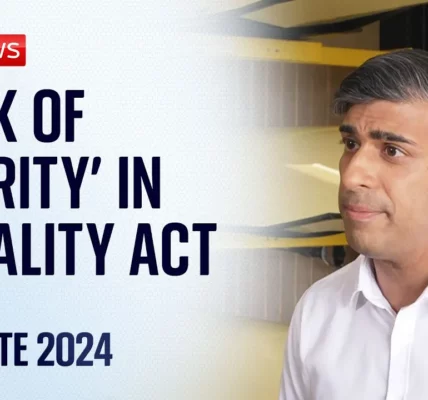UK Budget Implications: Tax Increases and Workers’ Rights

This article delves into the pressing issues regarding the UK’s upcoming budget, analyzing the potential tax increases suggested by economic experts, the implications for public services, and the significant reforms on workers’ rights proposed by the government.
Introduction
As the UK government prepares for its upcoming budget, significant discussions are underway regarding the potential need for substantial tax increases. According to analysis from the Institute for Fiscal Studies, Chancellor Rachel Reeves may need to implement a tax hike of £25 billion to prevent a return to austerity. This article explores the implications of these tax increases, the challenges they present, and the newly proposed reforms aimed at enhancing workers’ rights across various sectors.
The Need for Tax Increases
The Institute for Fiscal Studies (IFS) has warned that the Chancellor must address a £25 billion gap in the budget to maintain current levels of public spending. This section outlines the key factors contributing to this gap and the implications for public services.
Understanding Austerity
Austerity measures typically involve cuts to public services and spending. The IFS suggests that without significant tax increases or alternative funding, the UK could face severe repercussions in public health, education, and local government services.
Taxation vs. Borrowing
Chancellor Reeves faces a difficult decision between raising taxes or increasing borrowing. The current fiscal landscape shows:
- High levels of existing debt relative to GDP.
- Increased spending on debt interest and welfare.
- Challenges in maintaining funding for essential services.
Experts suggest that while borrowing could provide temporary relief, it may not be a sustainable long-term solution.
Potential Areas for Tax Increases
The government has made several pledges regarding tax rates, especially concerning income tax and National Insurance. However, the reality of the fiscal situation may force reconsideration of these pledges:
- Reviewing employee National Insurance rates.
- Potential increases in VAT or corporation tax.
- Exploring new taxes on wealth or property.
Workers’ Rights: A Major Reform Initiative
In addition to the financial challenges, the UK government is also proposing significant reforms aimed at enhancing workers’ rights, which are touted as the biggest boost to pay and productivity in a generation.
Key Reforms Proposed
The government aims to extend protections for workers, including:
- Improved sick pay and parental leave policies.
- Protection for zero-hours contract workers.
- Creating a single category of worker to reduce gig economy inequalities.
Potential Impact on Businesses
While these reforms are designed to aid workers, they also present challenges for businesses, particularly small and medium enterprises (SMEs). Concerns include:
- Increased operational costs due to enhanced employee protections.
- The risk of reduced flexibility in workforce management.
- Potential resistance from businesses regarding implementation timelines.
Balancing Growth and Worker Protections
The government asserts that improving workers’ rights can lead to higher productivity, creating a win-win scenario. However, this remains a contentious issue as businesses fear that extended rights could hinder economic growth.
Conclusion
As the UK approaches a critical juncture in its budget planning, the discussions surrounding tax increases and workers’ rights reform are more pertinent than ever. The government must navigate these challenges carefully to balance fiscal responsibility with the need for social equity. Stakeholders from all sectors are encouraged to engage in dialogue to help shape a sustainable economic future. For ongoing updates and detailed analysis on this evolving situation, stay tuned to our news coverage.
“`




